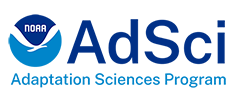Climate vulnerabilities and adaptation pathways for Northeast U.S. fishing communities






Advancing scientific understanding of climate, improving society’s ability to plan and respond






Advancing scientific understanding of climate, improving society’s ability to plan and respond

